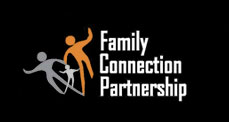

|
∙ Stress Stress (back to top) Stress can give you energy, or can cause problems with your physical or mental health. Some ways to try to relieve stress are:
Stress can affect your feelings and emotions. If these
feelings begin to get in the way of your normal activities, they
may be warning signs that you need help.
Learn to Control Stress (back to top)
Connect with a Mentor (back to top) Rising Star Mentoring Program for boys and girls Raising Excellence to Another Level What is Counseling (back to top) Counseling is a time to talk to somebody you like and trust
about something that is bothering you. Your family and
friends can help sometimes, but other times, it’s hard to talk
about personal stuff. That’s when a counselor can help you. How a Counselor Can Help (back to top) Counselors will respect your privacy. You can discuss anything you want: family, friends, drugs, sex, and feelings. If they need for you to tell others about certain things, like if you are planning to hurt yourself, they will still help you. Where to Find Counseling (back to top) You are lucky there are a lot of places to get help near by.
All the places listed have people who will talk to you and see you with no one else knowing. Some have groups for kids with the same problems you have. IF YOU NEED HELP, GET IT, DON’T GIVE UP!! Crobsy Mitchell Counseling Services Eating Disorders (back to top) If you want to change the way you look, you aren’t alone!
One way to shape up is to exercise regularly and to choose foods that are low in fat and high in fiber. Some healthy foods are fresh fish, poultry, fruits, vegetables, low-fat dairy products, whole grain cereals, and bread. What is an Eating Disorder? (back to top) An eating disorder is an unnatural, unhealthy relationship with food. Some of the most serious eating disorders are anorexia nervosa, bulimia, and compulsive overeating. Seek medical help or counseling if you suspect you have an eating disorder! |
 MENTAL HEALTH
MENTAL HEALTH